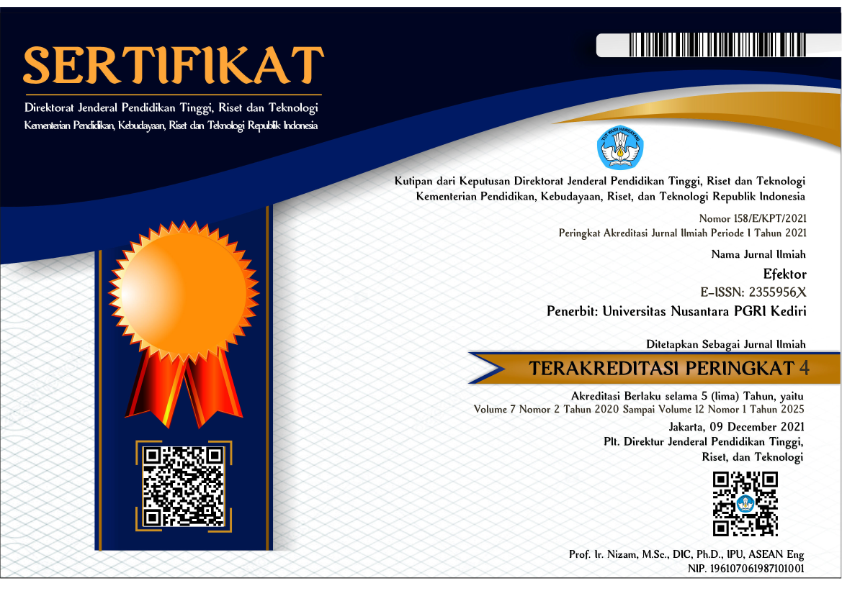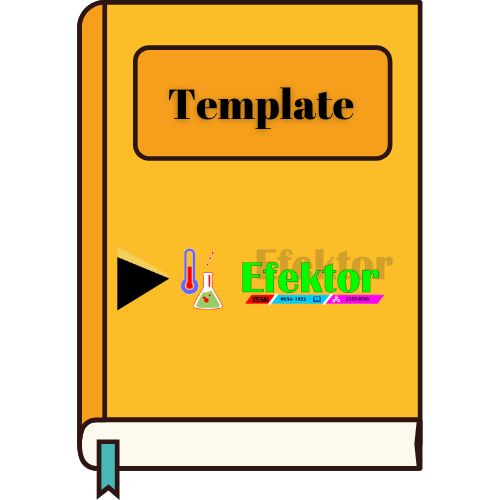Lesson Study: Berkolaborasi Mengubah Tradisi Pembelajaran Sejarah
DOI:
https://doi.org/10.29407/e.v5i1.11920Keywords:
Lesson Study, berkolaborasi, tradisi, pembelajaran sejarahAbstract
History is a subject that has a strategic role in the formation of the character and civilization of a dignified nation. But in reality the subject of history is less favored by learners. One of the contributing factors is the tradition of historical learning. There are still many history teachers who teach by relying on the ability of rhetoric regardless of the characteristics of learners. Therefore history teachers should change the tradition of learning history. Changes in history learning tradition must be done systematically and continuously. For that history teachers need to collaborate and synergize in making changes in historical teaching tradition. The right step is with Lessson Study activities because teachers / lecturers can conduct collaborative and continuous learning lessons to test and improve the effectiveness of learning. Lesson Studydi Activities History Study program is conducted with subject of study subject study of History of Indonesia 1945-1965. This activity is done through three stages, namely plan, do, and see. Data collection techniques were conducted with participant observation, while data collection instruments used observation guidelines. The results of data collection were analyzed using descriptive technique, ie by describing the systematic steps undertaken by Lesson Study team in changing history learning tradition. The historical teaching tradition that is still fixed on the paradigm of information forwarding and involves only low cognitive skills that is memorized has been successfully changed through Lesson Study activities. By collaborating and synergizing the changes in historical learning tradition can be systematic and sustainable. This condition is now beginning to be seen in the course of History Education. Although not yet running optimally, slowly but surely, the lecturer of the course of History Education has managed to change the tradition of learning. The habit of lecturers who often dominate the lesson by doing lectures while being ethical can be transformed into student-centered learning. The old habits of students who tend to be only fun listening to the explanation of lecturers to do a lot of activity to mengkrruksi knowledge. Therefore Lesson Study activities should be continued and optimized for implementation.
References
Havekes, Harry. Aardema, Arnoud & Vries, Jan de. 2010. Active historical thingking: Designing learning activities to stimulate domain-specific thinking. Teaching History, 139. 52-60.
Okolo, Cynthia M. Englent, Carol Sue. Bouck, Emily C, Heutsche, Anne M. 2007. Web-based history learning environ-ments: Helping all students learn and like history. Intervention in School and Clinic, 43 (1). 3-12.
Russel III, William Benedict & Pellegrino, Anthony. 2008. Constructing Meaning from Historical Content: A research study. Journal of Social Studies Research, 32 (2), 3-15.
Sailah, Illah. 2012. Pedoman Penulisan Makalah Lesson Study untuk Seminar Exchange of Experience. Jakarta: Direktorat Pembelajaran dan Kemahasiswaan Ditjen Dikti.
Suryo, Djoko. 2005. Paradigma Sejarah di Indonesia dan Kurikulum Sejarah. Makalah disajikan dalam Seminar Nasional dan Temu Alumni Program Studi Pendidikan Sejarah Program Pascasarjana Universitas Sebelas Maret Surakarta.
Wiriaatmaja, Rochiati. 2002. Nasionalitas, Etnisitas, dan Integrasi Bangsa dalam Pembelajaran Sejarah. Bandung: Universitas Pendidikan Indonesia.
Downloads
Published
Issue
Section
License
Authors who publish with this journal agree to the following terms:
- Copyright on any article is retained by the author(s).
- The author grants the journal, the right of first publication with the work simultaneously licensed under a Creative Commons Attribution License that allows others to share the work with an acknowledgment of the work’s authorship and initial publication in this journal.
- Authors are able to enter into separate, additional contractual arrangements for the non-exclusive distribution of the journal’s published version of the work (e.g., post it to an institutional repository or publish it in a book), with an acknowledgment of its initial publication in this journal.
- Authors are permitted and encouraged to post their work online (e.g., in institutional repositories or on their website) prior to and during the submission process, as it can lead to productive exchanges, as well as earlier and greater citation of published work.
- The article and any associated published material is distributed under the Creative Commons Attribution-ShareAlike 4.0 International License













